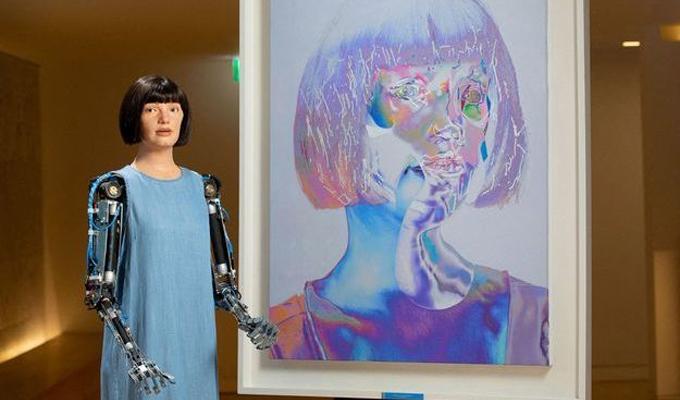By akademiotoelektronik, 01/04/2023
Artificial intelligence: AI-da robots that give a second life to works of art from antiquity
A team of researchers in the ancient city of Pompeii (Italy), has managed to reconstruct wall paintings and other archaeological pieces in this ancient Roman city, using artificial intelligence (AI).
The restoration work is carried out using a robot called AI-da, the first artist robot equipped with mechanical arms, associated with a high-definition scanner and three-dimensional digital recognition software managed by AI.
This is one of the interventions of the European project RePair (“Reconstructing the Past: Artificial Intelligence and Robotics”), which aims to help archaeologists restore the frescoes of the past using artificial intelligence and visual recognition.
Funded by the European Union to the tune of 3.5 million euros, this project facilitates the process of reconstruction and rehabilitation to give a second life to works of art from antiquity and the Middle Ages , according to the actuia.com website.

As a whole, the project aims to develop a robotic system using artificial intelligence that is capable of autonomously assembling fragments from objects of the past that are now fractured into several pieces.
It also aims to use a robotic infrastructure to restore remains and frescoes from archaeological sites in record time.
Pompeii is the first city to benefit from this restoration aid because it is famous for having been one of the first cities affected and buried by the eruption of Vesuvius, a volcano located barely 9 kilometers from homes. .
Since then, this city has been an archaeological site on a human scale, with many historical remains and ancient works of art just waiting to be discovered, preserved, restored or rebuilt.
"However, the physical reconstruction of broken works of art represents one of the most laborious stages of archaeological research, not to mention the fact that these works of art are numerous", specifies the AI expert at the 'Ca' Foscari University of Venice, Marcello Pelillo, quoted by the same source.
Related Articles